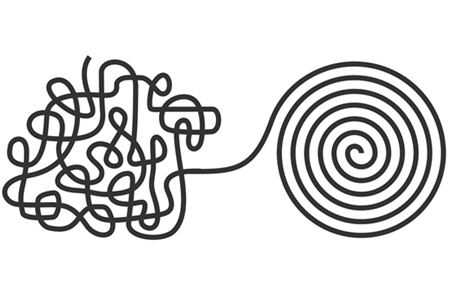 Parents and teachers help with the diagnosis.
Parents and teachers help with the diagnosis.
What is ADHD? What about ADD, “inattentive type” ADHD, or mixed hyperactive and inattentive ADHD?
While it takes a psychologist, psychiatrist, or neurologist to “diagnose” ADHD, parent and teacher rating scales are significant pieces of that “diagnosis.”
You are the parent and have been in touch with your child’s teachers over the years. You probably have a good idea of whether your child displays behaviors that suggest a lack of attention and focus.
Your child…
…lacks focus for routine or difficult tasks; has insufficient attention to details; seems disorganized and frequently leaves work incomplete; gets distracted easily by noises or external stimuli; forgets things that are part of daily life; has difficulty waiting for his or her turn; fidgets or squirms instead of sitting quietly; excessively talks or interrupts; is always “on the go.”
The above behaviors suggest the need for further testing.
I administer cognitive performance-based tests, such as CNS Vital Signs (CNSVS), that help identify areas causing your child’s problems. CNSVS is the same measure that many doctors use for measuring the cognitive status of their patients.
CNSVS gives me an objective standard that shows where the areas of difficulty may lie (e.g., attention, executive functioning, processing speed, visual memory, verbal memory, etc.).
It also helps me determine how best to help your child.
 Metabolic problems are sometimes the culprit.
Metabolic problems are sometimes the culprit.
Focus and attention problems may have another cause, other than various types of ADHD. These problems show up when there are metabolic issues, sleep is not optimal, or stress is present.
Working with kids in the school system and private clinics, I’ve helped parents with all these issues.
While I’m NOT a doctor, I have worked with enough specialists to know when to make referrals or suggestions for parents whose child needs help with metabolic, dietary, and other health-related or lifestyle choices.
Establishing a new routine helps.
As a Neurotherapist, I’ve seen the impact of sleep issues on the brain. Sleep is hugely important. Getting enough *quality* sleep these days – with electronics and social media filling the day and evening – is a challenge for kids and parents.
Even with optimal sleep and nutrition, some kids continue to exhibit problems with focus and attention. That’s when coaching becomes important.
An important initial stage in coaching involves establishing a structure that includes home and life routines and expectations. Like the “blinders” on a racehorse, routines and visual reminders create a “spotlight” that helps kids focus on what’s next and most important.
Next, we address brain patterns.
After the foundations for good attention are in place and the groundwork is established, I may recommend some tools and techniques that directly address brain patterns.
An integrative approach, where we bring together and “stack” appropriate solutions, will give the fastest and most comprehensive results.
Helping your child achieve the right “brain speed” for the task at hand is part of the art and science of what I do.
 Each child is unique.
Each child is unique.
Some children are a “quick fix,” but others may require months of training and coaching.
My expertise in gathering data and bringing together state-of-the-art tools combined with tried-and-true organizational strategies results in positive changes for children with attentional issues.
This approach is what I offer to you. Let’s make a proper diagnosis and treatment for your child.
Contact me today at 703-303-0751.

